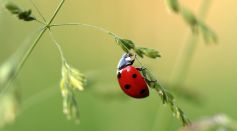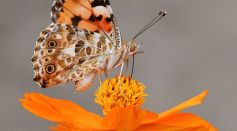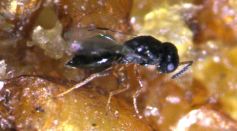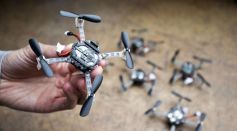Tags: Insects

Insects Can Be an Essential Teaching Tool for Children - Researchers
Leaf Cutter Ants Evolved a Biomineral Armor That Protects It From Pathogens
Science Just Figured Out Why Mosquitoes Love Human Blood
Researchers Find a New Species of Gall Wasp - A Possible Parasite of a Parasite

Monarch Butterflies' Spectacular Migration Is at Risk – an Ambitious New Plan Aims To Help Save It

Mobile Phone Radiation Causes Decline of Insect Population, Says Study
Chemical Used as Defense Against Pests, Used by Moths to Lay Eggs

A Natural Water Repellent Nanostructure Is Found on Insects
Science and the Media Have Opposite Views on the ‘Insect Apocalypse.’ Who’s Right?
Butterflies and Other Land Insects Could See Dramatic Population Decline Over the Next 30 Years: Study

Unnoticed Insect Apocalypse Will Happen Sooner If Factors Behind It Are Not Eradicated

Anopheles Mosquitoes Are More Resistant to Insecticides Thanks to Proteins Found in Their Legs

Invasive Spotted-Wing Drosophila May Now Be Controlled with Newly Discovered Biological Control Agent

Nature-Inspired Drones to Lend Support in Search and Rescue Operations
The First Genetic Evidence that Insects Experience Chronic Pain Revealed
Insects Instigate Greener, Cheaper Membranes for Desalination
Pollinators: What’s All the Buzz About?
An Insect Apocalypse is Happening, What Can We Do About It?
Recently Known Ways Insects and Bacteria Control Ice
Insects Are The Latest Victims of Climate Change
Most Popular

Relativity Time Dilation Explained: The Physics of Time and Why It Moves Differently in Space

How Lightning Science Reveals Why Charged Storms Are Rising with Global Warming Effects

How AI Is Used in Weather Prediction: Smarter Forecasting Through Machine Learning

De-Extinction vs. Conservation Science: Which Approach Protects Biodiversity Most Effectively?




